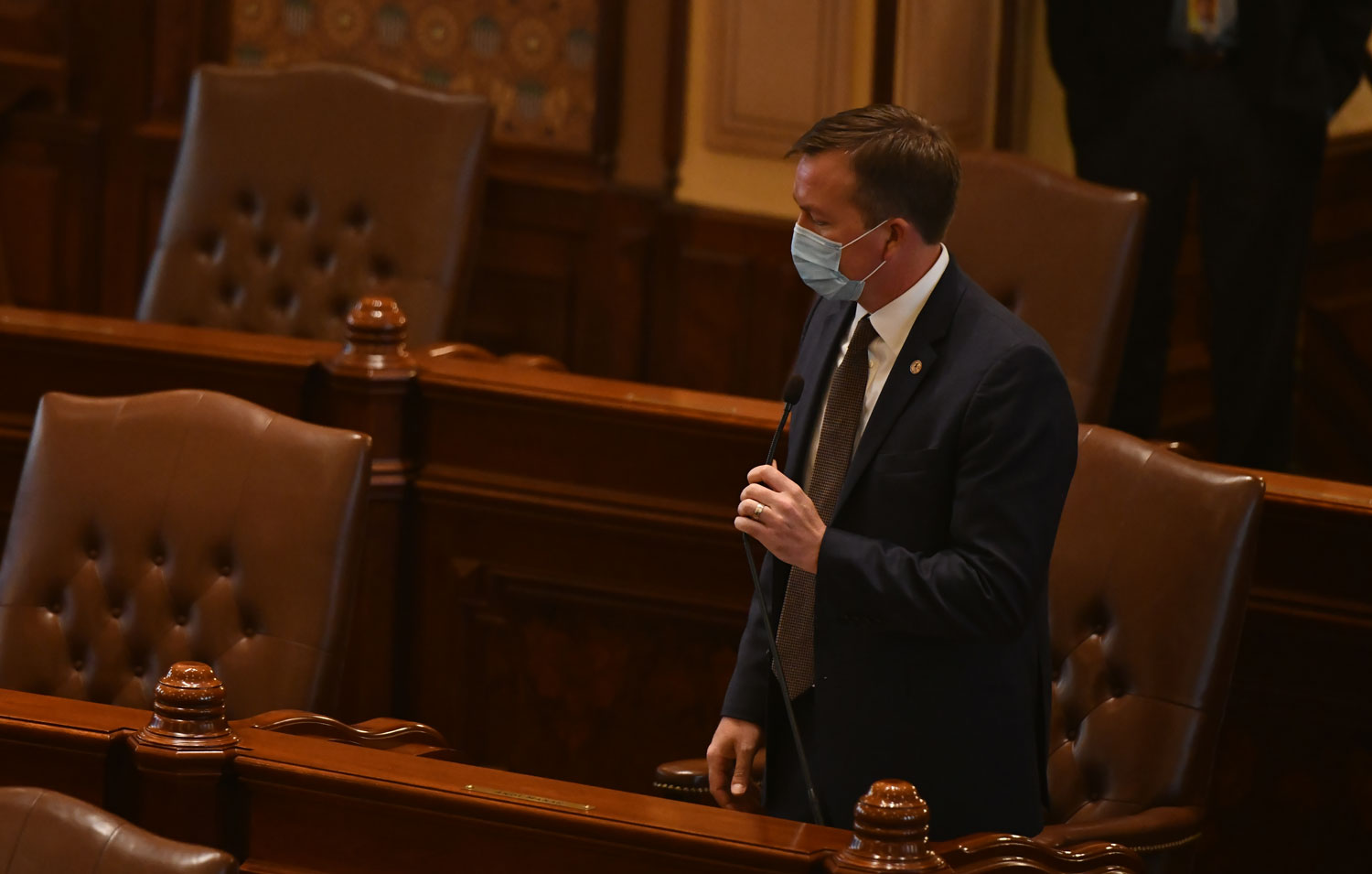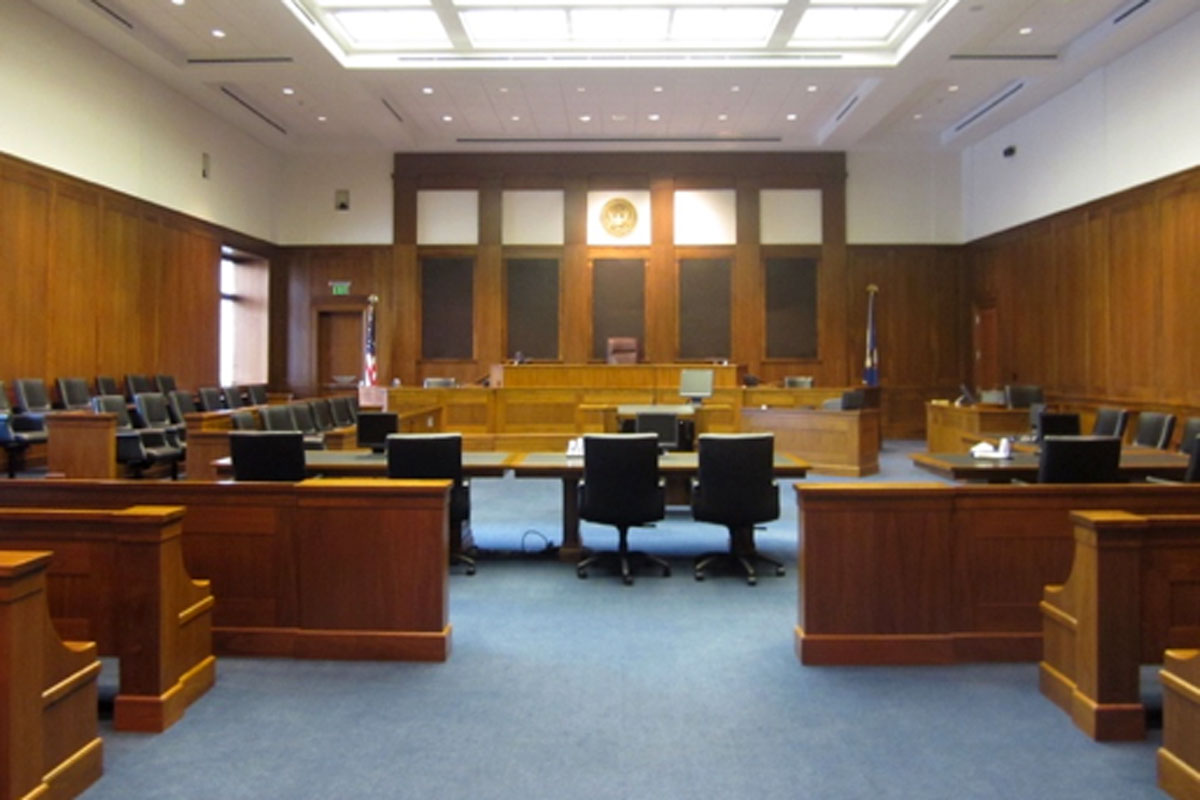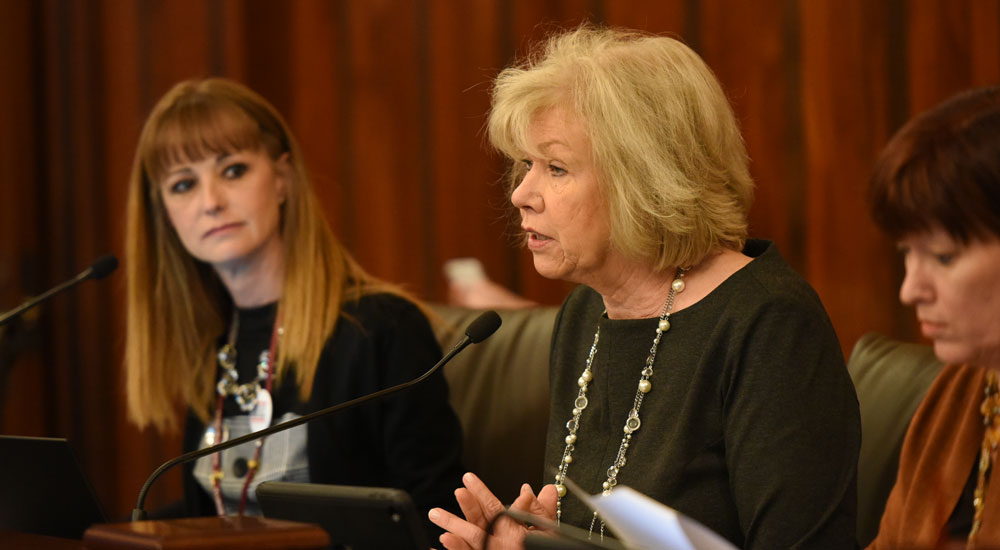- Details
- Category: Senator Laura Murphy News

DES PLAINES – In a continued effort to provide aid to small businesses struggling with income losses during the COVID-19 pandemic, State Senator Laura Murphy (D-Des Plaines) is notifying local business owners that applications for the second round of the Business Interruption Grant (BIG) program will be made available Thursday, Sept. 17 and will offer $220 million in funds for small businesses hit hardest by the ongoing pandemic.
“For the shops, restaurants, event venues and other businesses that bolster our local economies, these funds can’t come soon enough,” said Murphy. “I encourage business owners to look over the program requirements and gather necessary materials to make sure they can apply as soon as the application period opens.”
The second wave of BIG funding aims to provide relief for all types of small businesses, with provisions to ensure hardest-hit industries – including movie theaters, event venues, hotels, livestock farms and more – receive priority. Businesses with outstanding loan debts under the Illinois Small Business Emergency Loan program will also be eligible for assistance.
Of the total available funding, $70 million has been set aside for businesses in disproportionately impacted areas, or the zip codes facing the greatest economic distress as a result of the COVID-19 pandemic. In Murphy’s district, businesses located in the 60018 zip code in Des Plaines qualify for this aid.
Eligible businesses include businesses and nonprofits with $20 million or less in annual revenue in 2019. Businesses must also be able to demonstrate losses due to COVID-19 in excess of the grant amount.
“Small businesses make our communities home,” said Murphy. “I’m pleased to see more support becoming available to help our main streets start to rebuild.”
A preliminary application, application checklist, business certification forms and a list of eligible costs are now available on the Department of Commerce and Economic Opportunity website. The full application will become available on the page starting Sept. 17.
The first round of BIG funding awarded over $49 million in grants last month to approximately 2,800 businesses across the state. The BIG program is part of a series of relief programs created by the state to help businesses and communities recover from the COVID-19 pandemic.
- Details
- Category: Senator Laura Ellman News
 NAPERVILLE – The Illinois Environmental Protection Agency announced it will begin testing all community water supplies in the state for potential contaminants, a decision State Senator Laura Ellman (D-Naperville) says could help protect the health of both residents and the environment.
NAPERVILLE – The Illinois Environmental Protection Agency announced it will begin testing all community water supplies in the state for potential contaminants, a decision State Senator Laura Ellman (D-Naperville) says could help protect the health of both residents and the environment.
The Illinois EPA will begin testing for per- and polyfluoroaklyl substances (PFAS), human-made chemicals that do not occur naturally in the environment. They are widely used for waterproofing and stain-fighting applications in a range of commercial products such as waterproof clothing, food wrappers and many household products.
- Details
- Category: Senator Pat McGuire News

JOLIET — State Senator Pat McGuire urges businesses in Will County affected by the current COVID-19 Resurgence Mitigations to apply for economic assistance announced today by Governor JB Pritzker.
“The measures needed to stop the spread of COVID-19 require extra sacrifice from certain businesses,” McGuire said. “That’s why the new Business Interruption Grants grant competition prioritizes those businesses.”
Read more: State economic aid available for area businesses under COVID restrictions
- Details
- Category: Senator Andy Manar News

SPRINGFIELD – To curb the devastating economic effects brought on by COVID-19, State Senator Andy Manar (D-Bunker Hill) is encouraging small business owners to apply for the second round of Business Interruption Grants, a key piece of the State of Illinois’ pandemic response effort.
Manar, the Senate Appropriations II Committee Chair, fought to ensure necessary funding for this program during last spring’s budget negotiations.
Read more: Manar urges local business owners to apply for next wave of Business Interruption Grants
- Details
- Category: Senator Elgie R. Sims Jr. News
 CHICAGO—Illinois lawmakers from both chambers will come together to discuss the current condition of sentencing reform on Tuesday.
CHICAGO—Illinois lawmakers from both chambers will come together to discuss the current condition of sentencing reform on Tuesday.
State Senator Elgie R. Sims, Jr. (D-Chicago) of the Senate Criminal Law Committee and State Senator Robert Peters (D-Chicago) of the Senate Public Safety Special Committee will co-chair the Senate Criminal Law Committee hearing. State Representative Justin Slaughter (D-Chicago), chair of the House Judiciary-Criminal Law Committee, and other members of the committee will be active guests during the hearing.
Read more: Black Caucus prompts second criminal law hearing to tackle sentencing reform
- Details
- Category: Senator Patrick Joyce News
 KANKAKEE – State Senator Patrick Joyce (D-Essex) is encouraging Kankakee County residents to dispose of their household hazardous waste at a collection event on Saturday, Sept. 26 from 8 a.m.-3 p.m.
KANKAKEE – State Senator Patrick Joyce (D-Essex) is encouraging Kankakee County residents to dispose of their household hazardous waste at a collection event on Saturday, Sept. 26 from 8 a.m.-3 p.m.
“This event provides residents of Kankakee County and surrounding areas the opportunity to safely and responsibly dispose of unwanted household chemicals and other hazardous products,” Joyce said. “This event will lead to safer homes and a cleaner environment for our community.”
The free event is sponsored by the Illinois Environmental Protection Agency and will take place at Kankakee Community College, located at 100 College Drive in Kankakee, allowing residents to dispose of unused or leftover household products commonly found in homes at no cost.
Residents are encouraged to bring chemical cleaners, oil-based paints, thinners, antifreeze, motor oil, gasoline, kerosene, weed killers, insecticides and pesticides, old or outdated medication, and similar hazardous household products. Fluorescent and other high-intensity discharge lamps may also be brought to the collection event.
For safe transport of household hazardous waste, residents are asked to:
- Pack household hazardous waste items in a disposable box to avoid spilling during transport.
- Keep like chemicals together and separate unlike chemicals.
- Secure lids and make sure containers are not leaking.
- Place box(es) of household hazardous waste in the empty trunk of the vehicle, away from passengers, during transport.
- Remain in the vehicle at collection site. On-site personnel will remove the household hazardous waste from the trunk of the vehicle.
The following items cannot be disposed of during the event: latex paint, explosives, propane tanks, fire extinguishers, smoke detectors, agricultural chemicals and business wastes. A complete list of household hazardous wastes that are and are not accepted is available online here.
The collection event is open to all Illinois residents. For questions or additional information, please contact the Waste Reduction Unit of the Illinois EPA at 217-524-3300.
- Details
- Category: Senator Ram Villivalam News
 CHICAGO – Now that the Illinois Department of Transportation has begun accepting applications, Senate Transportation Chair Ram Villivalam (D-Chicago) is encouraging qualified individuals to apply for seasonal snow-and ice removal positions.
CHICAGO – Now that the Illinois Department of Transportation has begun accepting applications, Senate Transportation Chair Ram Villivalam (D-Chicago) is encouraging qualified individuals to apply for seasonal snow-and ice removal positions.
“Snowplow driving is an essential service that keeps our roads clear and our drivers safe,” Villivalam said. “This is a good employment opportunity for people who have struggled to find work.”
Temporary snowplow drivers are hired every year on a full-time and on-call basis through IDOT’s “snowbird” program. To be considered, applicants must have a commercial driver’s license. Any potential employee must undergo a physical, vision test, and drug and alcohol screening.
Applicants are selected based on their availability, job-related experience, and qualifications. Veterans are also strongly encouraged to apply.
“With so many people currently unemployed, I hope they will take advantage of this opportunity to apply for a stable job heading into the winter,” Villivalam said.
More information about the application process in specific districts, available positions, potential benefits, and salary can be found on IDOT’s website.
- Details
- Category: Senator Julie A. Morrison News
 DEERFIELD – During a Senate Human Services Committee Monday, Chairman Julie Morrison called on the Department of Children and Family Services for greater transparency relating to child deaths and injuries that happen under the agency’s watch.
DEERFIELD – During a Senate Human Services Committee Monday, Chairman Julie Morrison called on the Department of Children and Family Services for greater transparency relating to child deaths and injuries that happen under the agency’s watch.
“Every member of the General Assembly should receive the Death or Serious Life-Threatening Injury Report each month so we can all be aware of these tragedies,” Morrison (D-Lake Forest) said. “We need to know about those children, their cause of death and the circumstances.”
Read more: Morrison calls on DCFS to abide by Abused and Neglected Child Reporting Act
More Articles …
- Crowe highlights state funds to create jobs in Metro East
- The Majority Report 09/14/20 - Expanded job training, the need to fill out the census and funding for the opioid crisis
- Ellman: Don’t be complacent, fill out the census
- Joyce announces Will and Kankakee Counties will receive economic recovery grants
Page 582 of 720












 © 2025 Illinois Senate Democratic Caucus
© 2025 Illinois Senate Democratic Caucus